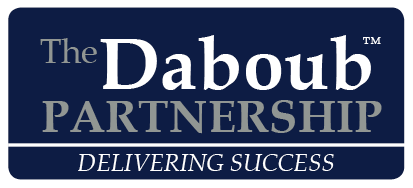World Economic Forum Climate Council: Dr. Daboub to Chair, Raise Awareness of Adaptation
/The World Economic Forum Global Agenda Council on Climate Change members, shown here in Dubai, gathered in preparation for the summit in Davos.
Global Adaptation Institute (GAIN) Founding CEO Dr. Juan Jose Daboub was recently appointed Chair of the Global Agenda Council on Climate Change of the World Economic Forum (WEF). In the past week, other new council members have been incorporated including Gary Lawrence, Vice President and Chief Sustainability Officer at AECOM, and Richard Saines, Partner and Head of North American Environmental Markets and Climate Change Practice at Baker & McKenzie.
Dr. Juan Jose Daboub, GAIN Founding CEO:
GAC on Climate Change Chair
Dr. Daboub served as Managing Director of World Bank Group from 2006-2010 and prior to that as the Finance Minister and Technical Secretary of the President of El Salvador.
It is necessary to heighten awareness and develop actionable solutions on all levels, said David Burwell, Director of the Carnegie Endowment Energy and Climate Program.
“Accelerating the transition to high growth, low carbon economies is absolutely essential for mitigation of, and adaptation to, the increasingly frequent impacts of climate disruptions on both the natural and built environment,” Burwell said. “This requires persistent, committed partnerships between the public and private sector. There is no person better suited for, and more committed to, advancing these partnerships in the context of the WEF than Dr. Juan Jose Daboub.”
Dan Bena, Senior Director of Sustainable Development for PepsiCo, commented on the need to bring together experienced leadership to form the WEF agenda.
“PepsiCo has been active in several of the Global Agenda Councils of the Forum over the years, and we have participated first hand in the global thought leadership that can result from such experts of world renown focused on a common agenda, like their recent New Vision for Agriculture,” Bena said. “Dr. Daboub is perfectly suited to chair the GAC on Climate Change, owing to his diverse experience, recognized leadership, and demonstrated record of successes in support of adaptation.”
Gary Lawrence, Vice President and Chief Sustainability Officer at AECOM:
GAC on Climate Change Member
Lawrence has 30 years of experience in sustainability, urban and regional planning and has advised governments and organizations around the world.
“I am delighted and honored to be named to the WEF Council,” said Lawrence. “I’m looking forward to working with the Council to advance options that translate people’s needs and desires into a more sustainable approach for the future.”
Richard Saines, Partner and Head of North American Environmental Markets and Climate Change Practice at Baker & McKenzie:
GAC on Climate Change Member
Saines, a widely published lawyer, brings more than a decade of experience in international climate change law.
“Having Dr. Daboub Chair the GAC on Climate Change for WEF is an exciting and encouraging sign, suggesting that our work will be focused on developing actionable and practical solutions,” Saines said. “As the world continues to grapple with how best to make the necessary transition to a low-carbon economy, the increasing need for innovative solutions to improve the climate resiliency of our most vulnerable populations is now an essential part of that conversation. I am honored to represent Baker & McKenzie on the Council and excited to work with the other Council members under Dr. Daboub’s leadership.”
GAIN’s contribution to the climate change solution
The Global Adaptation Institute (GAIN) contributes to the international effort for global development in its focus on adaptation – the urgent need to build resilience to increasing global challenges such as climate change, urbanization and population growth. GAIN concentrates its efforts in four sectors crucial to saving lives and improving livelihoods – water, food & agriculture, coastal protection and energy. The GAIN Index, which measures indicators in these sectors, is designed as a navigation tool to help guide investment in adaptation. The GAIN Index measures 161 countries in terms of their vulnerability to these challenges and readiness to attract investment in adaptation.
About the World Economic Forum
WEF’s Summit on the Global Agenda, the world’s largest brainstorming session that provides the intellectual framework for the development of the program of the Annual Meeting in Davos, Switzerland, will be held November 12-14 in Dubai, United Arab Emirates. WEF’s Network includes the world’s leading global thought leaders from business, academia, government and civil society. The network consists of more than 80 councils that provide insight and strategic recommendations to address critical global issues such as adaptation. Findings of the councils inform WEF’s programming and set the direction for global, regional and industry agendas.



